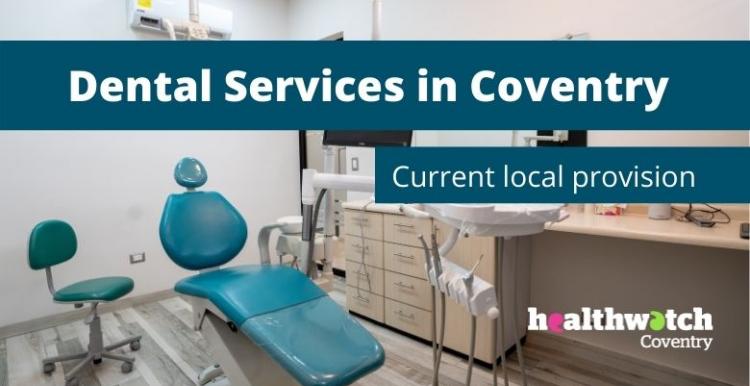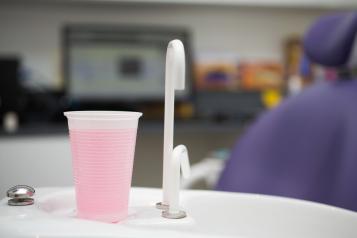Access to NHS dental services: What we found

Being able to access routine dental care on the NHS is important to promote and maintain good oral health. Without it, people may experience pain, tooth loss and difficulties eating. Many people can’t afford to pay privately for dental treatment and so they rely on NHS-funded care to keep their teeth healthy.
It is also important that when someone needs urgent or emergency dental treatment they can access this quickly and easily.
Unfortunately, access to routine and emergency NHS dental care changed during the course of the COVID-19 pandemic. This meant some people experienced delays in receiving routine care and difficulties finding help in urgent or emergency situations.
Dental practices have been able to reopen since June 2020. Additional cleaning measures between patients, changing PPE, maintaining social distance, and trying to manage the backlog of appointments have all contributed to delays and reduced capacity. Some dental procedures that increase the risk of exposure to COVID-19 (e.g. drilling, polishing) may only be available on a case-by-case basis.
Summary of our findings
We spoke to 27 of the 32 dental practices in Coventry to find out about NHS dental provision. This is an 84% response rate giving a good indication of current NHS dental provision.
It is encouraging that the majority of practices in Coventry are offering NHS patients routine check-ups and emergency treatment. 100% of the practices we spoke to are offering these appointments. This is a marked difference from August 2020 when only 5 practices were able to offer routine appointments and 17 offered emergency treatment.
However, only 63% practices are currently accepting new NHS patients. This could mean some local people will struggle to register with an NHS dentist. Paying privately for dental care instead is not an option everyone can afford. There were indicators from our findings of pressures on NHS dentistry meaning that some practices would not see new NHS patients even in an emergency.
65% of practices that are accepting new NHS patients said they would be able to offer an initial routine appointment within an average of two weeks. One practice (6%) was not able to provide an estimate. Six weeks was the longest estimated wait.
The General Dental Council has advised patients may experience longer waiting times than they are used to as dental practices implement recommendations to reduce the risk of COVID-19. Some of the additional comments from staff that our volunteers captured demonstrate how busy some practices are and that they are working at reduced capacity.
Our results will also be shared with Healthwatch England. They have been working to raise issues about dentistry people are experiencing around England and for action from NHS England.
What we did
Three of our volunteers phoned each of the 32 dental practices in Coventry. We tried to make contact with each dental practice 3 times between 12th April and 11th May 2021.
We asked the practices if they wanted to take part in our survey and they could say no if they wished.
This work follows on from something similar we did in August 2020. We reviewed dental practices websites and phoned them to understand what dental services were being offered as we came out of the first lockdown. We found 5 were offering some form of routine treatment to NHS patients, whilst 17 were providing emergency treatment. Part of our role is to provide information to people about access to NHS services.
What we found out
Of the 32 practices we called:
- 27 practices answered our survey
- 1 declined to take part
- We were unable to speak to someone at 4 practices
This was a response rate of 84%.
We initially called 33 practices. We have excluded one practice that answered our questions from our final results as the practice only accepts referrals for orthodontic treatment as opposed to regular NHS dental treatment.
Practices with NHS patients
Of the 27 dental practices that answered our survey;
-
26 already had adult and children NHS patients registered with them
- 1 already had children registered with them as NHS patients
When asked whether they were currently accepting new NHS patients, 16 said they were accepting both adults and children as NHS patients. One practice we spoke to was only accepting children as new NHS patients whilst 10 weren't accepting any new NHS patients.
Waiting times for a routine check-up
We asked dental practices to give us an estimated wait time for a newly registered NHS patient wanting a routine check-up.
Of the 17 practices currently accepting new NHS patients, 11 said they would usually be able to offer a routine appointment within 14 days of registering. The shortest wait could be as little as 3 days (answer from one practice) whilst the longest wait could be 42 days (answer from two practices).
It is important to remember these timeframes were estimated by staff when we called. They are 'best guesses' rather than results based on studying their appointment data.
Why practices aren't accepting new patients
If practices told us they were not accepting new NHS patients, we asked them why this was. We wanted to understand whether the pandemic had influenced this decision.
Here's a selection of the responses we received:
"Yes, it is due to the pandemic; the pressure is immense. There are too many emergencies, even our existing and loyal patients can't get in."
"We only stopped accepting new NHS patients last week as we are booked 5 to 6 weeks ahead. We would not be able to provide our regular existing patients with the service they need."
"We have gone crazily busy and do not have the facilities to accommodate them."
"Full now as backlog due to COVID."
Some practices explained they were unable to accept any new NHS patients because they had reached their capacity and fulfilled their NHS contracts.
One practice answered they will have capacity to accept new NHS patients again from June.
Emergency and routine care
Of the 27 practices we spoke to, all were offering routine check-ups to NHS patients already registered with them.
All 27 dental practices we spoke to were accepting emergency NHS cases. We did not specifically ask them whether they were accepting NHS patients not registered to them for emergencies, however, 6 practices stressed they are only seeing their own patients for emergencies. Two practices said they will see their own and unregistered NHS patients for emergencies, whilst a further two said they would do their best to accommodate unregistered emergency patients if they had capacity.
The staff member we spoke to at one practice was unsure whether they would accept unregistered patients for emergencies and the remaining 16 practices did not specify.
Other information
Our volunteers were able to capture additional information or comments that individual practices wished to share.
- Two practices shared they are offering less appointments than they were before the pandemic due to requirements to deep clean and change PPE between patients. The time between appointments needs to be longer to allow for this. One practice said this reduced their capacity to 60%.
- One practice confirmed they can offer routine check-ups but services such as 'scale and polish' are only available to patients with gum disease.
What next?
Our results will also be shared with Healthwatch England. They have been working to raise issues about dentistry that people are experiencing around England and for action from NHS England. One of the key issue relates to the contracts NHS England has with NHS dentists, which governs how payments are made to dentist for the NHS treatment they do. This requires a national solution.
Thank you
We would like to thank the Healthwatch Coventry volunteers who helped us carry out this project: Elsie, Gaile and Gillian. Their input has been invaluable.


